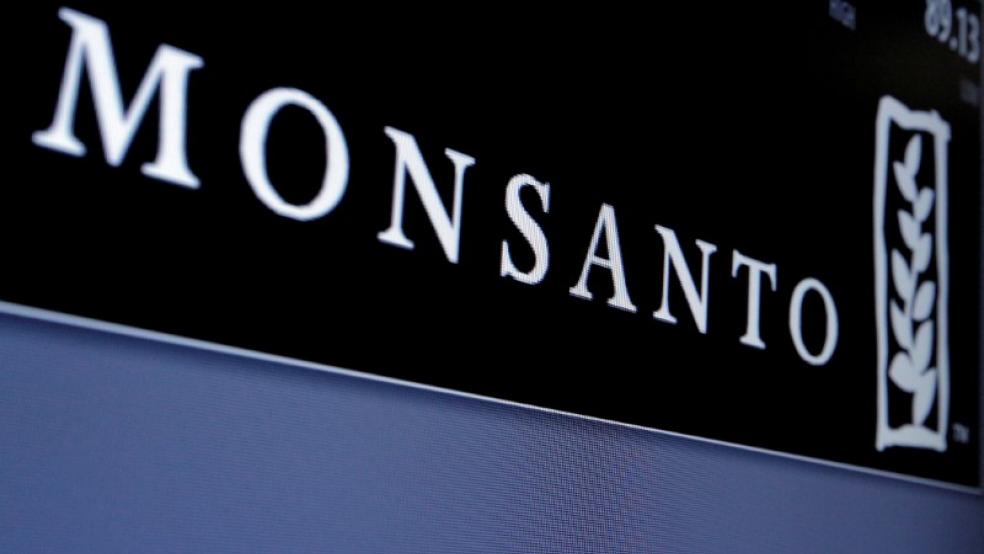Bayer brushed off some critics — and more than a few of its own shareholders — on Monday by offering to buy up Monsanto.
The Germany-based Bayer — a pharmaceutical and agricultural chemical giant — is offering roughly $67 billion to buy up the St. Louis-based Monsanto — a company that's famous (or infamous) for its seeds and genetically modified crops. The deal would offer Monsanto investors $122 per share if it went through — a 37 percent premium on Monsanto's closing price on May 9. And what's most eyebrow raising is that the purchase would be heavily financed by borrowing, substantially increasing the total debt burden for Bayer, or whatever the new combined company would be called.
Related: Why US Companies Have Record Amounts of Cash -- and Debt
That seems to be the source of much of the skepticism around the offer. Bayer shares even dropped about 3 percent at the deal's announcement.
To understand why Bayer would make this eyebrow-raising gamble anyway, a clue might lie in how the specific businesses of genetically modified organisms (GMOs) and agricultural pesticides and herbicides interact.
GMO crops burst onto the scene in the 1990s and have remade the face of global agriculture since then, creating no small amount of controversy along the way. There are the usual worries about health effects on humans, but assessments of the evidence by groups as prestigious as the National Academy of Sciences have concluded there's no scientific basis yet for those fears. Another criticism is that patenting strains of GMO crops creates all sorts of perverse legal consequences, as farmers are getting sued for doing things as banal as saving and replanting seeds.
But one big defense of GMOs is that they've helped the environment by reducing chemical use in agriculture. New strains of GMO corn and maize have been engineered to resist insects, thus making pesticides and insecticides less necessary. And indeed, use of insecticides and pesticides for these crops appears to have dropped considerably since the early 2000s. A meta-analysis in 2014 concluded the introduction of GMO crops has reduced pesticide use by 37 percent and increased crop yields by 22 percent.
Related: From JC Penney to Macy’s, What’s Behind the Retail Bloodbath?
On the flip side, however, are herbicides for killing weeds. Since weeds are a separate plant, you can't really genetically engineer weed-resistant crops. But you can engineer herbicide resistant crops, allowing farmers to use herbicides more. This seems to have happened too: Herbicide use has gone up with the introduction of GMOs, even as pesticide use has dropped.
The consequences of this are still hotly contested. It's unclear whether modern herbicides are as bad for the environment as their forebears. But there's also the question of evolution's perpetual arms race: Overuse of GMO and herbicides may simply create even tougher strains of bugs and weeds, just like over-use of antibiotics has produced tougher strains of bacteria.
This all circles back to Bayer and Monsanto in a pretty straightforward way. As an agricultural chemical company, Bayer is big in both pesticides and herbicides. Which means the success of Monsanto-style GMO products is driving down sales of its pesticides. NPR's Dan Charles reported that, years ago, some Monsanto executives actually told him they thought pesticide companies in Europe were actually pushing a lot of the opposition to GMOs on the continent for this exact reason. It's a bit conspiratorial, and Charles was understandably skeptical.
Related: The FDA Just Gave Big Tobacco a Big Win on Vaping
But there's a simple way of understanding the incentives this dynamic could put in place: Bayer controls 17 percent of the global pesticide market (or did as of 2011, when the latest data was available), making it the second biggest player in the world. Monsanto, by comparison, controls just 7.4 percent of the global pesticide market, but 26 percent of the global seed market, making it top dog for the latter industry. So if you're a giant corporation with a stake in pesticides, and GMOs are cutting into pesticide use, why not just buy up the GMO leader?
And if GMOs are increasing herbicide use, and you're into herbicides too, so much the better: You can increase your revenues both coming and going.
The final bit of context here is the slowdown in the global economy, which hurts everyone's sales: Farm incomes have fallen as commodity prices have dropped, cutting into the revenue of companies that serve as farmers' suppliers. That in turn makes buying out competitors more attractive than putting in the hard work and innovation required to keep competing with them. That's as true of the GMO seed industry as it is of the agricultural chemical industries.
The seed industry has undergone a lot of consolidation over the last few decades — both before and after the GMO revolution — reducing from a whole slew of small operations to a few massive global players. On the agricultural chemicals front, DuPont and Dow merged in 2015, and Sygenta and China National Chemical Corporation agreed to merge in February. If Bayer's purchase of Monsanto goes through, it would be the biggest foreign takeover by a German company ever, and could leave the world in a situation where three companies control half of global seed sales.
Of course, for all these same reasons, frenzies of mergers also tend to happen just before big economic downturns. So if this deal goes through, Bayer had better hope they're actually as smart as they think they are, lest their win-win turn into a debt bust.
This article originally appeared on The Week. Read more from The Week:
How Mitt Romney can still take down Donald Trump
This new super battery can last 400 times as long as your iPhone

